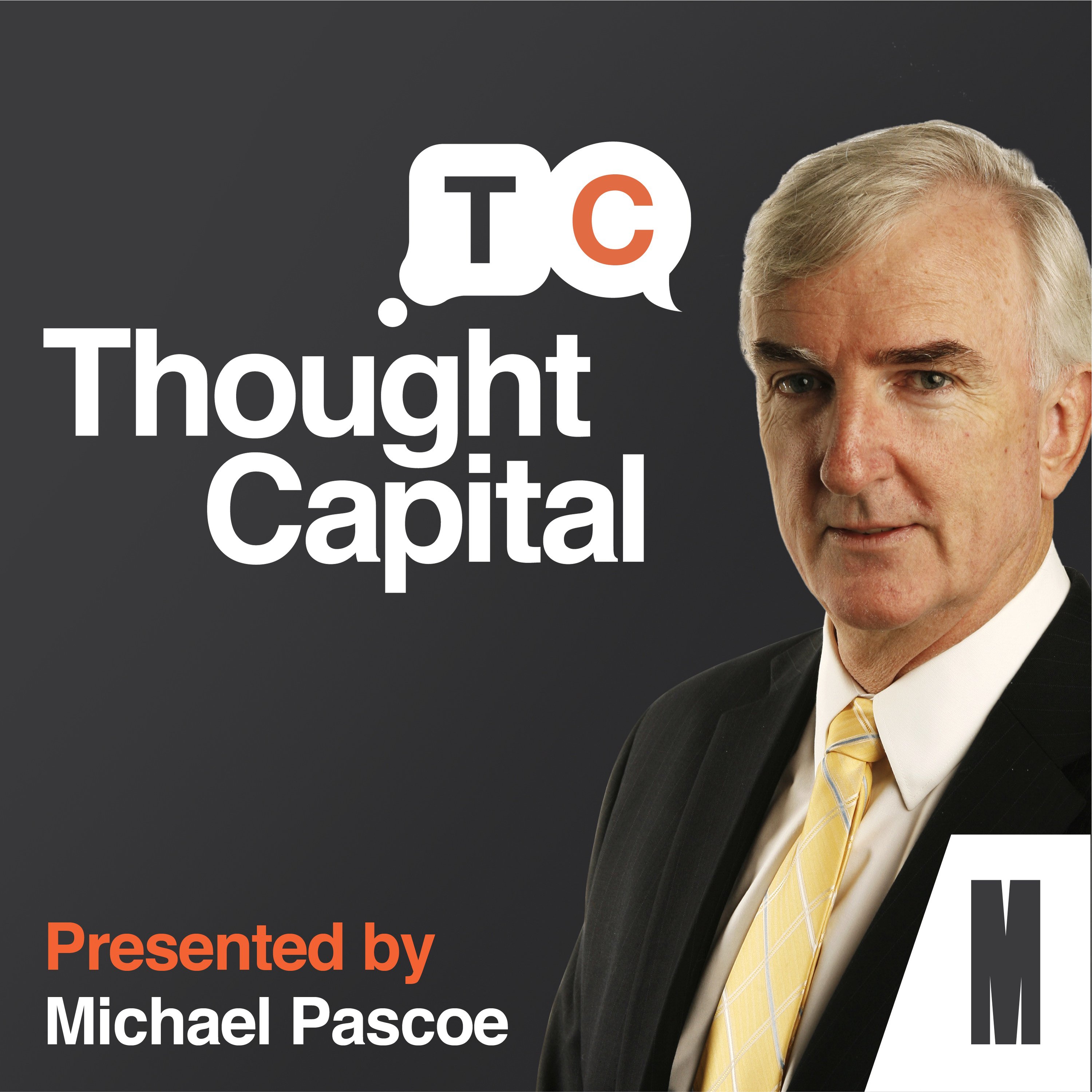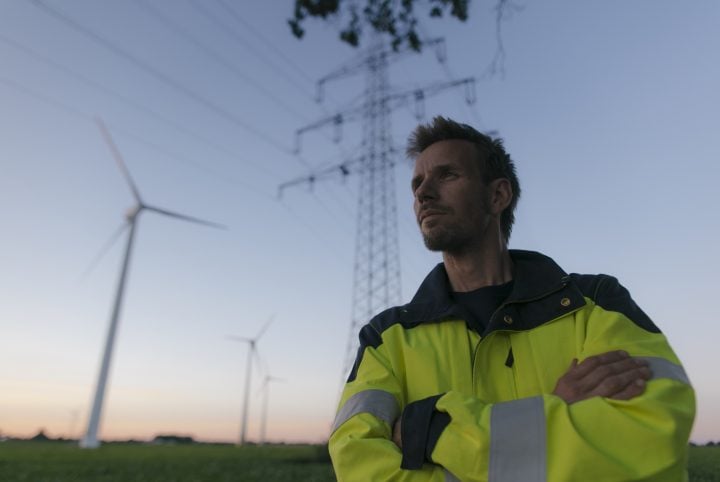Michael Pascoe: Welcome to Thought Capital, the podcast that delves into the wealth of ideas created by the experts at Monash Business School in Melbourne, Australia.
Michael Pascoe: We saw it all in the financial services, Royal Commission, corporate greed, lies and deceit, examples of people’s lives wrecked by the behaviour of banks that had failed customers. Among other things, commissioner Kenneth Hayne pointed his finger at culture and remuneration structures. Profit before people.
Kenneth Hayne: Do you think yourself that taking money to which there was now entitlement raised a question of the criminal law?
Michael Pascoe: There are other ways to run a business. Australia has hundreds of mutuals and cooperative companies, and everything from agriculture to credit unions, building societies to consumer co-ops. At least in theory, and generally in practice, they run on different principles.
Judith Downes: I’m Judith Downes and I’m the chair of Bank Australia, which is a mutual bank. I really like working with a mutual model. It removes a sense of conflict between doing the very best thing for your customers and generating the very best profit for your investors.
Michael Pascoe: Dr Paul Thambar and Professor Matt Hall from the Department of Accounting at Monash Business School are developing a framework to measure the value produced in these kinds of companies. We’re looking at what mutuals and co-ops can teach investor-owned companies, such as the big banks, about long-term ethical behaviour to benefit customers.
Michael Pascoe: Welcome to Thought Capital. Well first of all, what do you mean by measuring co-ops and mutuals? We haven’t been?
Paul Thambar: Well we have. We’ve been measuring them for a long time, and they do use the normal accounting measures, but those measures fall short because these are commercial companies with a commercial focus, but also with a very strong social purpose. They feel they are unable to measure the total value they create because accounting rules and accounting standards don’t capture all that an organization does.
Michael Pascoe: Matt, you’re a professor of accounting. You’ve failed your profession?
Matt Hall: Well, in some ways, we have.
Matt Hall: Yeah, it’s hard to know. I mean, I guess we were used to looking at either investor-owned firm or charities, NGOs or the government. They’re the kind of three sectors we get taught about. We don’t really get taught much about mutuals and co-ops.
Michael Pascoe: Well, let’s start with basics. Well, you’ve been trying to measure that social purpose, that extra. What are you finding?
Matt Hall: I think we’re finding it gets very hard. Profit doesn’t capture it and say what we’ve been trying to do last year is look at all the different ways that mutuals and co-ops have been experimenting with measuring this extra, this social purpose.
Paul Thambar: We have come up with six dimensions that they can think about in terms of the value they create, and then therefore, what they should be measuring. So, things like commerciality, how they actually make profits. Another key thing they do is they shape markets. So, they go into a market to keep the bastards honest, as they say. They create value through the relationships they have with members, with the community, and with the broader ecosystem.
Paul Thambar: One CEO explained to us it’s a bit like a school building. When your kids are in school, you’re paying into the building fund to fund the school building, but your kids are probably not going to benefit from that. It’s going to be the future kids who benefit from that, but your kids are benefiting from the investments made into the building fund by previous generations. So, it’s this idea of ecosystem and reciprocity. The third area is around this idea of what we call a mutual mindset.
Matt Hall: So, this is a term that we sort of learned from our research. You’re sort of getting at how mutuals behave and act differently to, say, investor-owned firms. We hear stories like some co-ops and mutuals literally have like a figure or a a figurine of a member that they literally put on the table to remind themselves that that’s what they’re there for; so when they make decisions, that it’s the member rather than the CEO’s bonus that’s at the centre of making a decision. Now that, of course, that varies. We’re not saying all mutuals and co-ops do that.
Michael Pascoe: You’ve interviewed more than 200 representatives of mutuals and co-ops as part of this research. Have you been able to formulate an idea of a particular culture or is there too much diversity across them?
Paul Thambar: So, the culture in a sense is quite different to an investor-owned firm, but most of the executives and managers in these organisations have come from the big end of town. So, they do bring that same sort of ethos. But then, that’s progressively changed over as the mixing with those who have been around in the cooperatives for a long time.
Paul Thambar: There is no incentive to play the customer off the member or the shareholder because they are both the one. The upper end of the organisation doesn’t get bonuses. The incentives and the bonuses are more at the lower end.
Matt Hall: Yeah. Even in banks, yeah.
Paul Thambar: Even in the banks. You’re been incentivised to sell a product. It’s about, have you met the member’s need, holistically?
Michael Pascoe: Let’s start with the basics. A mutual is not a charity, nor is it an investor-owned firm. A mutual sits somewhere in between where they both make a profit and have a strong social focus. A lot of mutuals are in the financial sector; whereas, many co-ops are found in other sectors of the economy, such as agriculture. Mutuals tend to be governed by federal legislation and co-ops by state legislation.
Michael Pascoe: Most importantly, they are member-owned as opposed to owned by investors, which means the people who use them own them. The customer and the member are one and the same. Judith Downes is the chair of a mutual bank, Bank Australia.
Judith Downes: We do not pay bonuses. We do reward our lowest level of staff with small amounts for each year, depending on how well they’ve done in their job. It’s not a sales reward, it’s a how well you have done in your job reward. So because there’s no bonus culture, the staff don’t come in thinking, “Well, if I confessed that we’ve made mistakes, I’m going to lose my bonus.” There’s no bonus to be lost.
Judith Downes: When we think about the Royal Commission, probably the most stark contrast was the press that the industry super funds, who are mutuals, received compared with some of the press that the retail superannuation funds received. A lot of that, I think, is driven by the culture of the organisations. In a mutual organisation, because the alignment between the owners and the customers, the culture tends to be different. There tends to be a greater focus on service and the customers. It was that that the retail superannuation industry lost sight of.
Judith Downes: For us, and I think this would be true for many mutuals, our Constitution starts with the forward that says quite clearly, “As a mutual organisation, we operate for the benefit of our customers.” They are also our owners. It’s engraven on our minds. I say it’s on my forehead when I sit around the board table.
Michael Pascoe: It surprised me for years that particularly the financial mutuals haven’t grown and done better, because complaining about banks is the average Australian second biggest sport behind housing prices; and yet, they stay. They don’t move.
Matt Hall: No. I mean, I don’t know why people don’t switch. I mean, I’ve personally been a member of a mutual bank for 15 years.
Paul Thambar: But just on that, we’ve been doing some follow-up interviews with these mutuals. I was at one of the mutual banks the other day, and they were telling me that they’re growing in terms of their deposits of their balance sheet five times the system growth. So, they’re just unable to cope with the tremendous growth that they are experiencing right now. Partly, because of the, obviously, the fallout from the Royal Commission.
Michael Pascoe: Like the industry super funds.
Paul Thambar: Yes.
Michael Pascoe: Never had money pouring in the doors the way they are. Thanks to Kenneth Hayne.
Paul Thambar: Yep.
Michael Pascoe: Part of the Royal Commission’s fighting was about remuneration structures and that incentive that can drive behaviours. Have you been able to measure a definite difference in remuneration structure and the outcome you see, particularly in financial mutuals?
Matt Hall: We think they seem to get remunerated on a broader range of things that we certainly didn’t find, any who had this sort of sales remuneration culture where it’s all just about selling. In fact, often they would tell us it’s the opposite of that. You might even get pulled up if you’re sort of selling unnecessary products to members.
Paul Thambar: There’s a clear sense within these organisations of do the right thing. It’s almost a given. They’re all about doing the right thing by the member. So, that I think drives a lot of their behaviour.
Michael Pascoe: This is Thought Capital from Monash Business School. I’m Michael Pascoe. “Greed is good,” the Gordon Gekko character declared in the movie, Wall Street, and so it seemed to be in corporate Australia. Even when corporate greed was called out, there was little change. The million dollar bonuses continued to be paid along with the golden handshakes and parachutes, sometimes despite poor performance. Do those attitudes exist in mutuals and co-ops? Money speaks all languages.
Matt Hall: I think it depends a little on the kind of mutual. I mean, that’s another thing that can be very different. You can have a large mutual who is… The members are business owners and they’re very much interested in that mutual co-op for their own commercial purposes compared to say a roadside mutual where you might you use them only when your car breaks down once a year.
Michael Pascoe: How important is the connectivity with the members that it doesn’t become a self-perpetuating management?
Paul Thambar: Well, they have members being involved in a number of areas. So, certainly most of these mutuals and co-ops have member elected directors.
Matt Hall: Yeah, and member apathy is actually a real issue that co-ops and mutuals’ grapple with, particularly if you have a big, say, insurance mutual or financial mutual where if you’re just paying your premiums, you’re a member, but do you necessarily want to be involved in the governance?
Matt Hall: So, I think a lot of them struggle with how to engage a very large dispersed member base, which is very different from, say, a little credit union who used to operate in a country town, making sure members even know they’re a member over a coop or a mutual, which a lot of the cases, they don’t. So, that that can be very difficult.
Michael Pascoe: In the end, the Royal Commission caught big banks being caught up by their own greed, and their reputations were tarnished. What can those big banks, perhaps, learn from mutuals?
Matt Hall: If you incentivise sales, it’s not surprising. That’s what people will do. I mean, we teach this stuff in our normal courses, and this is like Incentives 101. So, broadening out the range of things that you reward people on, which may have to include some sort of softer things like, are you nice to customers? Do look after their interests? Things like that. I think mutuals’ would have a lot to say about how to do that effectively.
Michael Pascoe: What does that teach you about sustainability of the business?
Paul Thambar: I heard recently one of our corporate leaders making the statement that we need to ween our shareholders off this idea that more profit is better than less profit. If you want to have a sustainable business model, you need to do some of the things that we’ve identified in our work. Things like thinking and acting for the long-term, as well as the short-term.
Paul Thambar: Shaping the market, going into a market and being there for a period of time to establish and shape that market. Thinking about the ecosystem that you’re part of, and seeing whether you can do a win-win for everyone, not just a win-lose sort of scenario. There’s a lot that they can take from this sector. Being trustworthy, just doing what you say you will do.
Michael Pascoe: Chair of Bank Australia, Judith Downes again.
Judith Downes: In a mutual, the amount of profit is not necessarily what you’re aiming for. You might be aiming to, as we do at Bank Australia, provide your customers with both a better service and better rates than they generally get from the large banks. Very hard to measure that, because the advertised rates of the big banks are not necessarily what their customers get. But, we do, of course, monitor what our competitors do, which are the big banks, and try and make sure that we’re giving our customers not only better service, but better rates.
Judith Downes: There are also other undefinable things that you can give your customers. So at the moment, we’re running a campaign on clean money, which is asking people to think about what the money they put in their bank is doing. Where’s it working? What sort of industries is your bank lending turn investing in? So, where’s your money at work?
Judith Downes: For people that are aligned with our values, that’s an additional extra, if you like. So to stay in business we have to give the service people want, we have to give the technology they want, the distribution they want, and the better rates. Better on all those things if we can. But then, mutuals can also give that additional bit because they’re not just focused on the profit and their return.
Judith Downes: So for us, it’s being very transparent about what we stand for, and what our values are, and how we act in the community. Promoting our track record in conservation, and the environment, and in community investment in community involvement, much harder to measure that impact than it is to measure straight profit.
Michael Pascoe: Where does this research take you? What happens next as you try to get a better handle on measuring?
Paul Thambar: So, it’s a two year study. We have finished the first year where we basically tried to understand three things: what value do they create? How did they create it? And, what sort of measurements are they using now to measure whatever they are creating? So, that’s the first year.
Paul Thambar: Now, we are developing based on their developing and designing a framework. We are co-designing it with them. By the end of the year, hopefully what we will have is a mutual value measurement framework as we call it, which these organisations can then take, and customise, and use it to measure the value that they are creating.
Paul Thambar: What we mean by measure is not just come down to one number, but measure on a range of different dimensions and be able to talk about the value they create using these common dimensions and that itself is a win for them, because you can then say, “No, you’re a agricultural co-op over there, I’m a mutual bank here, but we are still measuring and creating value in the same way.”
Michael Pascoe: This is exciting research, which has potential beyond the mutuals and co-ops. What happens if you then take that framework and apply it to an investor-owned institution?
Matt Hall: Yeah, I think it could be very revealing. Especially, we’ve got a dimension around putting members first, doing the right thing, acting for the long-term. It would be quite interesting if you had not only mutuals and co-ops articulating how they do those things, but also now investor-owned firms.
Michael Pascoe: What’s the feedback you’ve received from the mutuals and the co-ops after the first year?
Paul Thambar: It’s been pretty good. No one’s pushed back on any of the six dimensions that we’ve come up with. No one’s sort of pushed back on any of the key findings of the report, and they’re looking forward to the next phase where we actually come up with a framework.
Michael Pascoe: Are there any international comparisons?
Paul Thambar: There are other frameworks, but nothing specifically for the mutual sector. One of the outcomes from this study that the industry wants is directly take it out globally.
Michael Pascoe: This is exciting. It’s new research, but in the end, who’s going to benefit from it?
Matt Hall: The co-ops and mutuals’ themselves should be able to benefit, that are articulating the values that they correct. Particularly, around these dimensions that we’ve identified. We think having this shared language and concepts is often the first thing you need to tell a good story about. They know the value that you’re creating.
Matt Hall: It should also help the members, and I don’t think the members of co-ops and mutuals necessarily understand what value they would get from being a member of a mutual or co-op compared to an investor-owned firm, for example. Then, we think it will also help the whole sector that will enable them to tell a more coherent story as a sector as a whole. This is what differentiates mutuals and co-ops from other types of organisations.
Michael Pascoe: What’s the incentive for the mutuals to get better at what they do to grow?
Paul Thambar: There is a recognition now, I think, in the community that you need to have diversity in business models. So, we’ve had the investor-owned business model and we’ve had the charitable model. We are seeing now in the charitable sector, the social entrepreneurs coming along and mixing that model a bit.
Paul Thambar: I think there is a space in this whole area for a different type of business model and a model that can maybe cancel out some of the negativity that we have seen with the excesses of the investor-owned model as we’ve seen through the Royal Commission and through other other things that have happened. There’s plenty of incentive right now for these organizations to buy into this.
Matt Hall: But, there’s also personal incentives for the executives in the sense of… I mean, a lot of them we’ve talked to. They get a bit tired of working in investor-owned firms where they feel that the only thing they’re really aiming at is delivering returns for shareholders. That becomes a bit meaningless as they say to us.
Matt Hall: So, I think a lot of them pick out the senior level, move over into co-ops and mutuals because they want to do something a bit differently. They want to be able to say, “Yeah, work on a business idea for five or 10 years and then see it come to fruition.” There’s this real sense of personal satisfaction that they get.
Michael Pascoe: So, a year into this project, you’ve interviewed more than 200 representatives. You’ve got to know a lot of mutuals and co-ops. How does it leave you feeling about the outlook for this business structure?
Paul Thambar: I think there’s a lot of promise. I mean, I’m certainly quite excited about working with this business model. There are challenges in terms of helping people understand what this model is all about. They refer to themselves as the ninja economy, hiding out in plain sight. So, they know that they’ve got a big challenge. I’m quite hopeful that they will actually be able to build on what we’re doing, and all the other initiatives that they’re taking to promote this business model and make it more available and more accessible to people.
Matt Hall: One of the impediments I would see to them growing is that sometimes they are perhaps not as cooperative as they could be with each other. The sector level, or organisation, has only been around for a relatively short time. They may have to achieve a lot in that time, but I think that sort of speaks a little bit to the need for, perhaps, more cooperation amongst the co-ops and mutuals themselves, and maybe that’s the key to them becoming more prominent.
Michael Pascoe: Thank you to Matt Hall and Paul Thambar for sharing your research with us. We also heard from Judith Downes, Chair of Bank Australia. Thanks for talking to us.
Michael Pascoe: You’ve been listening to Thought Capital from Monash Business School. You can find more episodes on iTunes, Spotify, and Stitcher, or wherever you listen to podcasts. This episode was produced by Tina Zenou, editor is Nadia Hume, sound production by Richard Edlin, executive producer is Helen Westerman. Thought Capital is recorded at Monash School of Media, Film, and Journalism.




